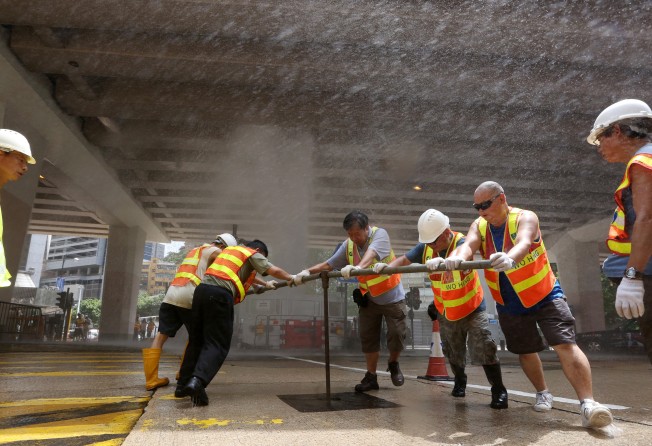Tap must be turned on Hong Kong’s waste of water
Leaks still account for 15 per cent of fresh supplies – three times the level of Singapore – while the less fortunate elsewhere are crying out for the resource

Clean air and water are basic needs and rights. For a place that has experienced insecurity of water supply, including rationing on most days as recently as 1964, Hong Kong is responsible nowadays for an extraordinary amount of avoidable waste.
Our water, mostly from the mainland, does not come cheap. According to the Ombudsman, the city has been pouring almost HK$800 million down the drain annually for the past three years – the result of failure to diligently repair leaking public pipes in an ageing system.
Despite improvements since 2006, the city still leaks 15 per cent of its fresh water – three times the level of Singapore.
After the Office of the Ombudsman turned its attention to the maintenance of government water mains, the Water Supplies Department singled out the locations of recurrent bursts for monitoring and regular repair.
It also looked abroad for methods to reduce leakage. It may be too early to judge the effectiveness of such overdue measures. It is important that they make a difference. Hong Kong may be a wealthy city, but it can ill afford to tarnish its image by squandering a gift of nature that remains liquid gold to less fortunate societies.
Until the agreement with the mainland that ensures most of Hong Kong’s needs are supplied from the Dongjiang, or East River, the city did not have a reliable supply because of the lack of natural lakes, rivers and accessible groundwater sources, a dense population and seasonal rainfall variations.
The Ombudsman’s investigation reveals that the reliable supply we have now is being depleted by failure to minimise water pipe bursts, and to follow up properly on suspension of supplies because of bursts. Although there is clearly much room for improvement in the department’s maintenance performance, it is good to hear a spokesman promise to upgrade the conditions of pipes at “hotspots”.
The Ombudsman estimated that a 33 per cent reduction in the leakage rate to 10 per cent could save the public coffers HK$530 million. Public money is squandered in myriad ways. But not a cent should be attributable to the waste of fresh, clean water when people in parts of the third world are dying from a lack of it.